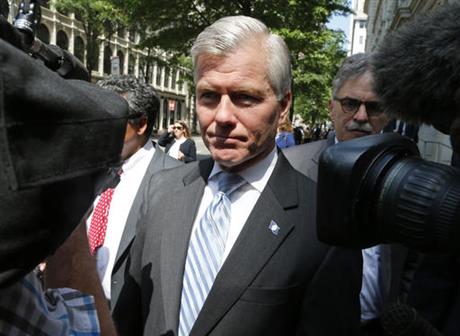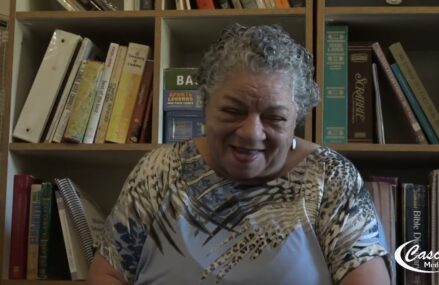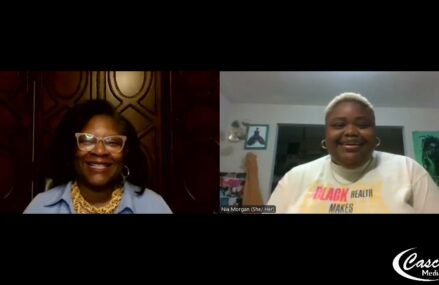
By SAM HANANEL
In its final argument of the term, the Supreme Court will weigh a former Virginia governor’s contention that doing favors for a businessman who gave him gifts like a Rolex watch, golf outings and money for wedding catering did not amount to public corruption.
The court’s decision in former Gov. Bob McDonnell’s appeal is expected to have wide implications for politicians and public officials by clarifying what distinguishes bribery from routine actions they often perform as a courtesy to constituents.
McDonnell was convicted of accepting more than $165,000 in gifts and loans from a wealthy businessman in exchange for promoting a dietary supplement. He insists his conduct in helping Star Scientific Inc. CEO Jonnie Williams never crossed the legal line into “official action.”
Lawyers for McDonnell will ask the high court on Wednesday to place new limits on the reach of federal bribery laws used to prosecute public officials.
Sponsored Links
CRM Strategy: How to Create a CRM Strategy for Your Business. Sign Up for a Demo
Salesforce
Don’t do it! The game that will have you hooked!
Stormfall: Free Online Game
There is no dispute that McDonnell and his wife hosted a product launch for Williams at the governor’s mansion, attended other events promoting Star Scientific’s products and asked other state officials to meet with Williams.
But lawyers for McDonnell argue that he never put any pressure on those officials and that Williams never got what he wanted — state funding for medical studies on the dietary pills. They say the government has placed every public official at risk of prosecution by criminalizing “everyday acts” that are part of the job.
“This case marks the first time in our history that a public official has been convicted of corruption despite never agreeing to put a thumb on the scales of any government decision,” McDonnell said in a brief to the court. “Officials routinely arrange meetings for donors, take their calls, politely listen to their ideas, and refer them to aides.”
Dozens of prominent legal figures, including former Attorney General John Ashcroft and former Obama White House Counsel Gregory Craig, have rallied to McDonnell’s defense. They say the trial judge in McDonnell’s case defined “official act” so broadly that the jury was allowed to convict him for simply granting Williams “political access” and encouraging other officials to carefully consider his proposal.
A three-judge panel of the federal appeals court in Richmond, Virginia, unanimously upheld the former governor’s convictions last year.
Solicitor General Don Verrilli says it is enough that McDonnell accepted personal benefits from Williams “on the understanding that he would take official action to assist Williams in return.”
Verrilli argues that McDonnell “solicited and secretly accepted personal benefits in exchange for agreeing to perform ‘official acts’ that fall within the definition federal law has given that term for more than a century.”
Williams loaned the couple tens of thousands of dollars to help them pay off debts, bought a Rolex watch for Bob McDonnell and purchased nearly $20,000 in designer clothes for McDonnell’ wife, Maureen. He also gave them $15,000 to cater their daughter’s wedding and paid for trips and golf outings for the couple and their children. Prosecutors said McDonnell usually responded within days of each gift to help garner support for Williams’ supplement.
McDonnell’s legal arguments could find a sympathetic ear at the court. In 2010, the justices voted unanimously to curtail prosecutors’ use of an anti-fraud law that was central in convicting former Enron executive Jeffrey Skilling. The court said there must be evidence of bribery or kickbacks to convict a public official of depriving the public of their “honest services.”
But the absence of Justice Antonin Scalia, who died in February, could be a blow to McDonnell. Scalia was a prominent critic of the law used to prosecute McDonnell and wrote a 1999 opinion saying the definition of “official act” was narrow.
“Scalia was certainly a strong voice for these types of issues,” said David Debold, a lawyer who submitted a brief on behalf of former federal officials supporting McDonnell. “His absence will certainly be felt here.”
McDonnell and his wife were convicted in 2014. McDonnell was sentenced to serve two years in prison, while his wife was sentenced to one year and one day. McDonnell remains free while his appeal is being considered and his wife’s appeal is on hold until the high court decides her husband’s case. A ruling is expected by late June.



